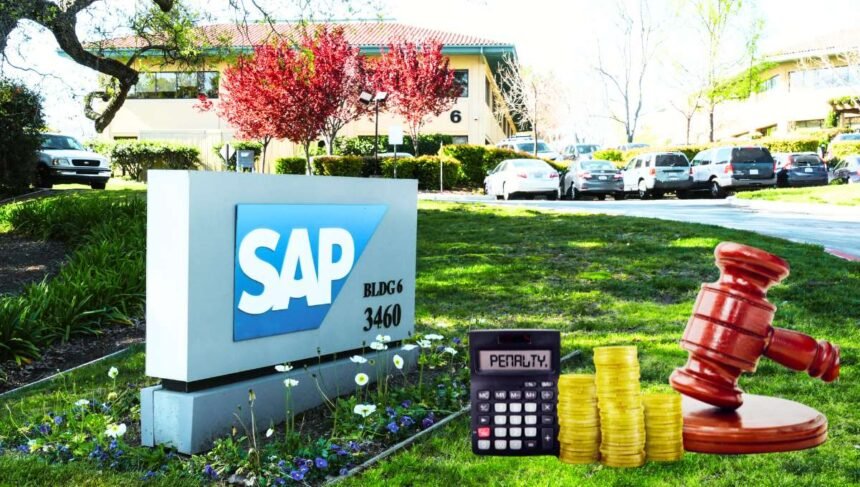The U.S. Department of Justice (DOJ) and the Securities and Exchange Commission (SEC) are looking into whether the German company SAP broke the Foreign Corrupt Practices Act (FCPA) by taking part in bribery schemes in South Africa and Indonesia. SAP has agreed to pay over $220 million in fines and forfeitures to end the investigations.
The decision shows that the DOJ is determined to go after foreign bribery and keep working closely with partners around the world. It also shows how the department’s business enforcement policies give companies a reason to fully cooperate and fix their problems.
SAP Enters 3-Year Deferred Prosecution Agreement and Pays $222 Million
In association with a two-count criminal information filed in the Eastern District of Virginia, SAP has signed a deferred prosecution agreement (DPA) with the DOJ that will last for three years.
The company is charged with:
- Conspiracy to violate anti-bribery and books and records provisions of the FCPA for the South Africa bribery scheme
- Conspiracy to violate the anti-bribery provision of the FCPA for the Indonesia bribery scheme
Under the DPA, SAP will pay:
- $118.8 million criminal penalty
- $103.4 million in administrative forfeiture
The criminal fine of up to $55.1 million can be used to offset any fines SAP has to pay South African officials for the same wrongdoing.
Bribery Schemes Spanned 2013-2018 Period
Court documents say that between 2013 and 2018, SAP set up plans to pay bribes to South African and Indonesian government officials in order to get contracts with state-owned businesses.
South Africa Bribery Scheme
Between 2013 and 2017, SAP paid bribes and gave other unfair perks to officials at state-owned businesses in South Africa. This was done to get an edge in contracts with:
- City of Johannesburg
- City of Tshwane
- Department of Water and Sanitation
- Eskom Holdings Limited (state energy company)
SAP worked with spies to make illegal payments in the form of cash, political donations, wire transfers, and shopping trips where they bought expensive things.
Indonesia Bribery Scheme
Between 2015 and 2018, SAP also paid bribes to Indonesian officials through agents. All of this was done to wrongly affect contracts with:
- Ministry of Maritime Affairs and Fisheries
- Indonesian state telecommunications agency
Emphasis on International Coordination to Fight Corruption
Nicole M. Argentieri, who is acting as assistant attorney general, said that this case is a big step forward in the DOJ’s fight against foreign bribery and corruption.
She talked about how important it was to work together with the South African government, building on the previous coordinated decision in 2022 (link to other case). The department will keep working to improve how countries work together on these problems.
Extensive Cooperation and Remediation Credited
The DOJ said that the terms of the settlement with SAP show that the company cooperated fully and took corrective actions on time.
Notably, SAP received credit for:
- Immediately cooperating since 2017 allegations surfaced publicly
- Taking steps to collect and provide evidence to DOJ
- Making witnesses available for interviews
- Collecting and organizing complex financial records
- Translating documents to facilitate review
- Undertaking root cause and gap analysis of misconduct
- Eliminating sales commissions for public sector contracts globally
- Increasing compliance budget and restructuring to ensure independence
- Adjusting executive compensation incentives to promote compliance
- Expanding audit programs and data analytics capabilities
Prior Export Control Violations a Factor in Penalty
In determining the resolution terms, the DOJ cited SAP’s prior history as an aggravating factor. This includes:
- 2021 Non-prosecution agreement with DOJ National Security Division
- Administrative agreements with Commerce and Treasury regarding export law violations
- 2016 SEC resolution over FCPA issues in Panama
The criminal sentence of $118.8 million is 40% less than the lowest possible sentence under the guidelines because the person cooperated and made amends.
The FBI and U.S. Postal Inspection Service were in charge of the investigation in the United States. The DOJ’s Office of International Affairs and South African officials also helped.
This case shows that the DOJ is dedicated to going after foreign bribery around the world, often by working closely with partners from other countries. It also shows the real benefits companies can get by working together and doing a lot of work to fix the problem.



